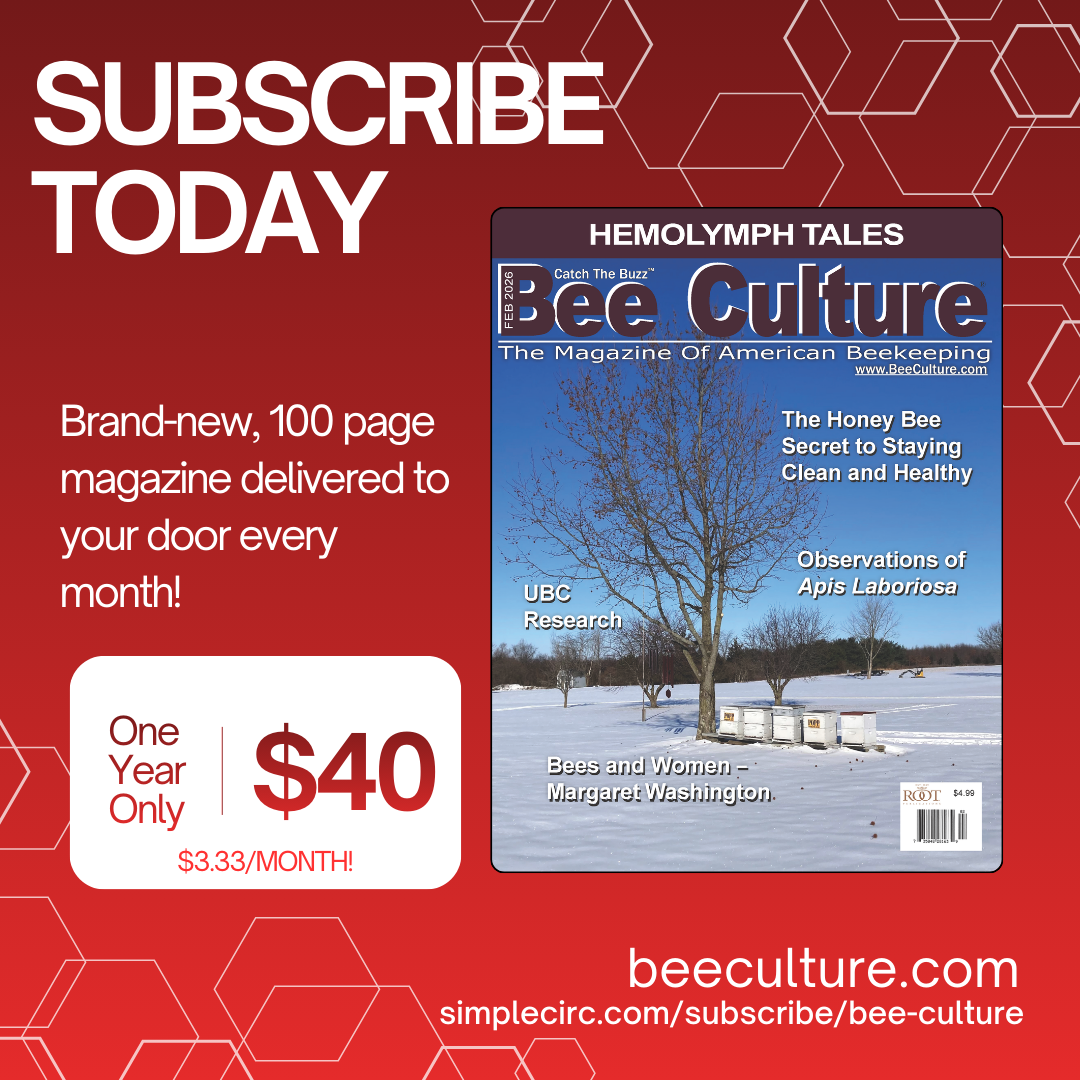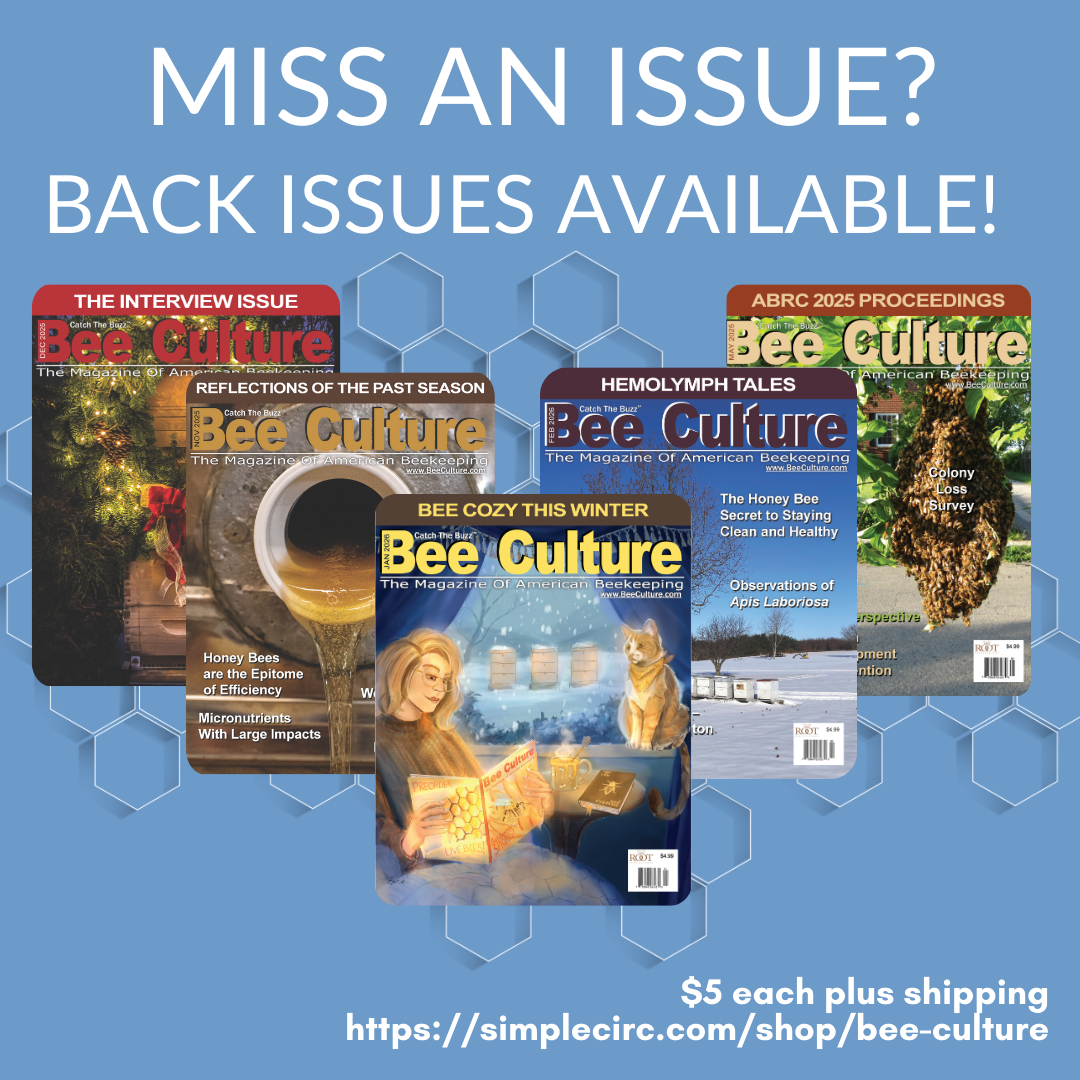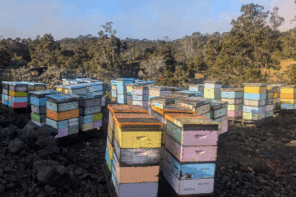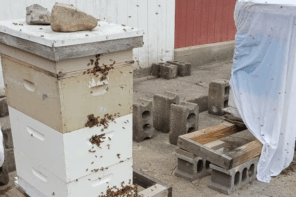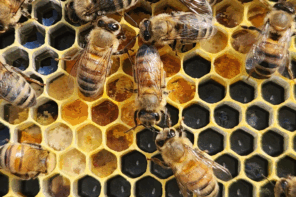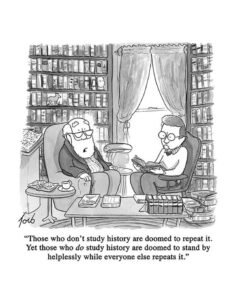 John Miller
John Miller
“History is hints and scraps of a former self.” It’s not my quote; but I know a good quote when I steal it. Actually, there is a bit more to this flip remark. In my business, if someone steals or plagiarizes my work I take it as a compliment!
American Beekeeping in 2021 is the product of a history. North American Keepers of bees are today here because some lost to history figure took a risk. How on earth did this anonymous historical figure prepare the first hive[s] – to cross the Atlantic – in a creaky tub not much bigger than todays muni-bus? Were other pilgrims ok with this basket of stinging insects? Was it a single hive, upon which the traveler bet everything? Or were more than a couple skeps involved? And on that Atlantic hop – the lethal cleansing flight on an open ocean – how did that go?
The re-introduction of honey bees went reasonably well, and hundreds of thousands of us mesmerized by bees enjoy the labor of this historical figure. We have only a hint and a scrap of who, or why, or when honey bees were re-introduced. And what great calamity befell the earlier amber entombed honey bees? Was it the Caribbean Meteor? Was it a pre-historic ice-age?
Americans aren’t good at history. We should be.
Here is a scrap: Out here in Dakota Country we pay a lot of attention to the weather. Weather can turn on a dime. A 2004 book titled “The Children’s Blizzard”, by David Laskin documents a fierce blizzard that caught and killed hundreds of North Dakota children walking home from school one weirdly balmy, deadly day, January 12, 1888.
More recently, snow totals during the 60s averaged 34” in Fargo. During the 70’s, snow totals averaged 44”. During the 80’s, snow totals fell slightly. But during the 90’s [including an ice-cap creating 1996 & ‘97] averages were 58” for the decade.
Does this trivial scrap have value?
In 1988 N.D. endured a drought. Amazingly, we harvested 80 pounds of honey per hive that year. I was discouraged. In 1989, the drought persisted, and it took beekeepers out. Thirty-two years later – in 2021 we are in a drought. It’s ugly. This time around, though, Facebook Commercial Beekeepers page lends near real-time transparency to the situation. Beekeepers with bees to lease posted loads of bees ready to go to Dakota. I was struck with two truths. Those Dakotians keeping bees very well remember the 1988-89 bruise; or if not yet in the bee business – avoided a historic bruise. A beekeeper I know very well lost his outfit, his marriage; and ended up on the night shift in a bottling plant. History repeats.
What about our recent beekeeping history? The Bee Informed Project has over a decade of historic data on how well we husband our hives. Whether we run 8; 80; 800; or 80,000 hives – we’ve consistently, annually killed 30-50% of our hives – for over a decade. Every beekeeper has access to the data. Every beekeeper also has access to improved Varroa destructor controls. We no longer have to repeat recent history. We don’t. But this is beekeeping. And sometimes beekeeping can feel like a donkey caught in a hail storm – we just stand there and take it.
I’m encouraged by the glycerin/oxalic pad. The recipe is a gift from Randy Oliver. I’ve spent time in the bees with Randy O., running hard to keep up with that relentlessly curious mind.
I’ve also read scientific papers that slowly, incrementally opened new ideas and original thinking to improve beekeeper success.
History teaches us that challenges that vexed my great-grandfather [American Foul Brood] were solved by antibiotics. Devastating spray kill losses taught me there had to be a better way to control pests than organo-phosphates & her deadly cousin the carbamates. I am hopeful the 2021-22 BIPster data set documents improved beehive survival.
All this modern science I don’t understand. Crisper is breakfast cereal, right? I think History will tell my grandchildren that this era was a golden time for discovery, and treatment, husbandry, and beekeeping success.
Is there anything more rewarding than opening a hive? Yes. Opening a healthy, robust colony and deeply sensing healthy brood, prosperity, health, well-being – and it is reaffirming. We have hints and scraps from many who came before us, who shared this passion for bees.
Lastly, an appreciation for our friend Lee Heine of Wisconsin. A brother in arms, Lee works to make the industry stronger, friendships deeper, service better. Safe travels my friend. You are a powerful example.

